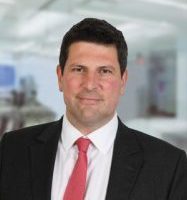Grant Alexander, present since last spring in Switzerland, and already InterSearch’s exclusive partner in France, has enabled it to extend its network to the Swiss market
Paris, 18th of July 2024 – InterSearch, a premier global executive search network established in over 50 countries, is now extending its international coverage to Switzerland through Grant Alexander, a key player in the HR consulting market. A member of InterSearch since 2022, the group last spring acquired futura21, a major player in Switzerland’s HR consulting market present in Geneva, Lausanne and Fribourg.
Grant Alexander, a multi-specialist HR consulting expert, has been deploying an ambitious international development strategy for over two years, firstly through its membership of the InterSearch network (with 90 offices in more than 50 countries and a turnover of over $210 million in 2023), and secondly via company-operated sites.
Thanks to the strategic merger competed last April with futura21, a key HR consultancy in French-speaking Switzerland, Grant Alexander has given a boost to its growth outside France. At the same time, it is enabling InterSearch to invest in the high-potential market represented by Switzerland.
Within the Swiss teams, Romain Buob, who has held management and development responsibilities within futura21 since its creation in Switzerland, takes on the role of Business Operations Manager Switzerland for Grant Alexander and will be the InterSearch referent for Switzerland.
“Being a member of InterSearch is a major strength as regards our ability to assist our clients and applicants at international level. Since we joined two years ago, we have been keen to actively contribute to the network’s development, and we are now delighted to provide it with an opening in Switzerland. We are convinced that the virtuous dynamic created between InterSearch and Grant Alexander will continue and help us broaden our range of options”, says Henri Vidalinc, President of Grant Alexander.
“This presence in Switzerland strengthens our international network, which already has over 90 locations, and enables InterSearch to provide ever more business opportunities for its members. We welcome Grant Alexander’s international development and are delighted to be associated with it”, says Frank Schelstraete, Chairman of InterSearch Worldwide.
About Grant Alexander
For over 30 years, Grant Alexander has been a partner to organisations and their leaders seeking to improve their performance, providing comprehensive support for all their skills management and development needs with a consistently tailor-made response. A multi-specialist HR consulting and services group with four business units (Executive Search, Executive Interim, Leadership Development and Transformation Advisory), it operates in all sectors with all types of post (managers/experts/rare profiles) throughout the world. It has several locations in France (Paris, Aix-Marseille, Lille, Lyon, Nantes, Toulouse) and Switzerland (Geneva, Lausanne, Fribourg) and is also the exclusive partner in France of InterSearch, one of the top global executive search networks. A committed social player, Grant Alexander was awarded Lucie 26000 certification in the context of its CSR approach.
About InterSearch Worldwide
InterSearch Worldwide is an international organisation comprising HR consulting and services providers, regularly ranked among the top global players. Founded in 1989, the InterSearch network is now present in more than 50 countries, with over 90 offices. InterSearch members are carefully selected from the best players in their market for their faultless integrity, transparency, high level of service and extensive experience. InterSearch: ‘Global reach. Local impact’.
www.intersearch.org
More info on Intersearch.
PRESS CONTACTS: ØCONNECTION AGENCY
Anne-Marie Boyault – amboyault@oconnection.fr – +33 (0)6 89 28 42 29
Emeline Réthoré – erethore@oconnection.fr – +33 (0)6 30 61 51 67



